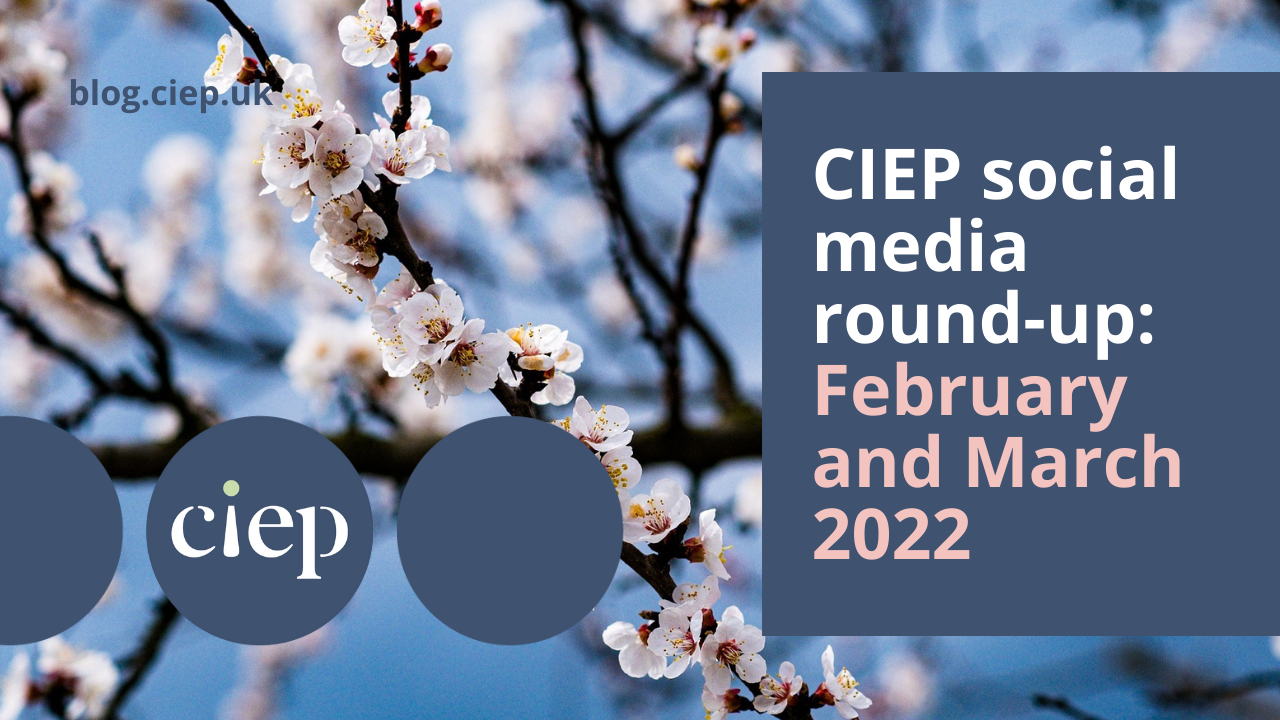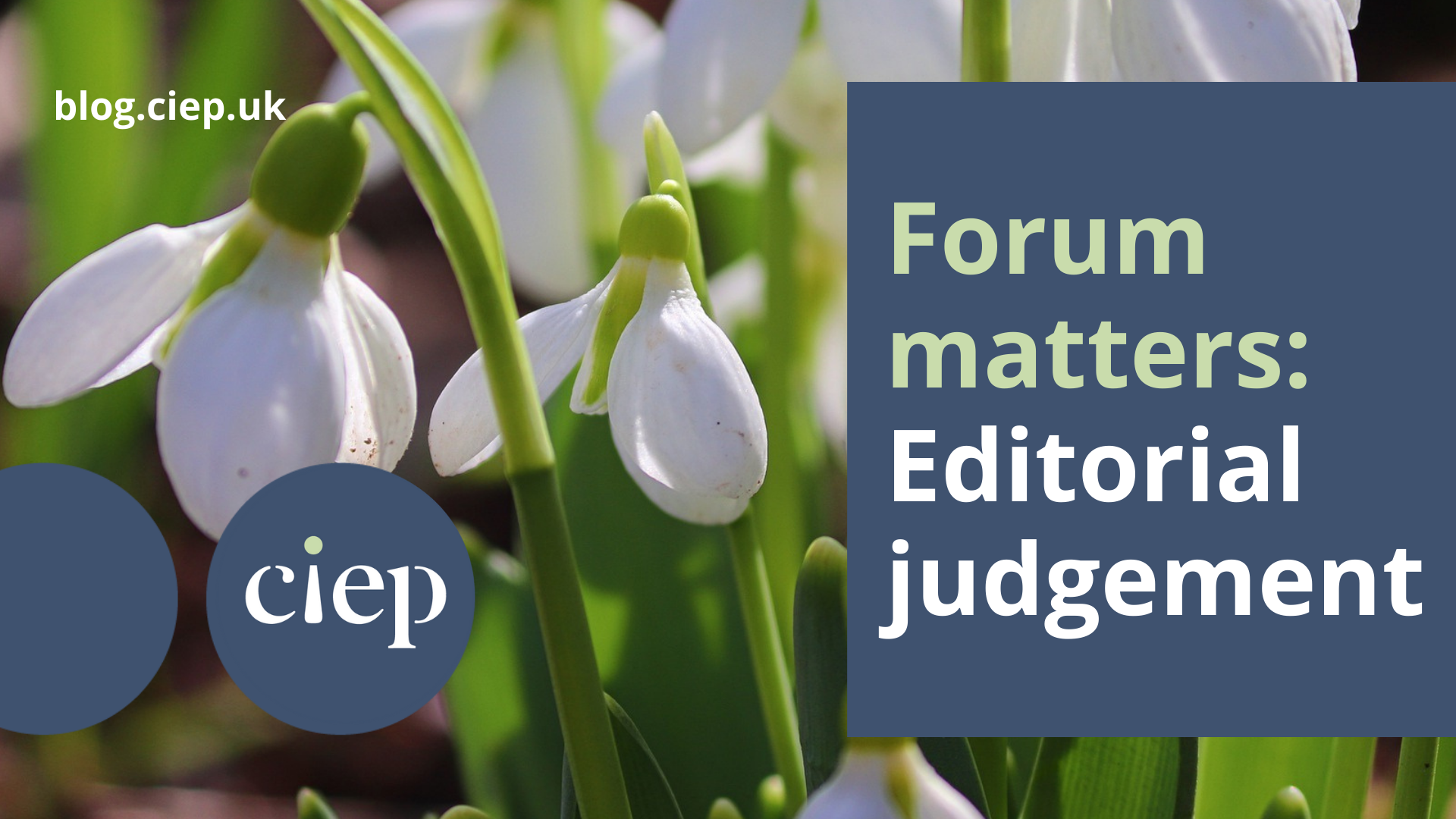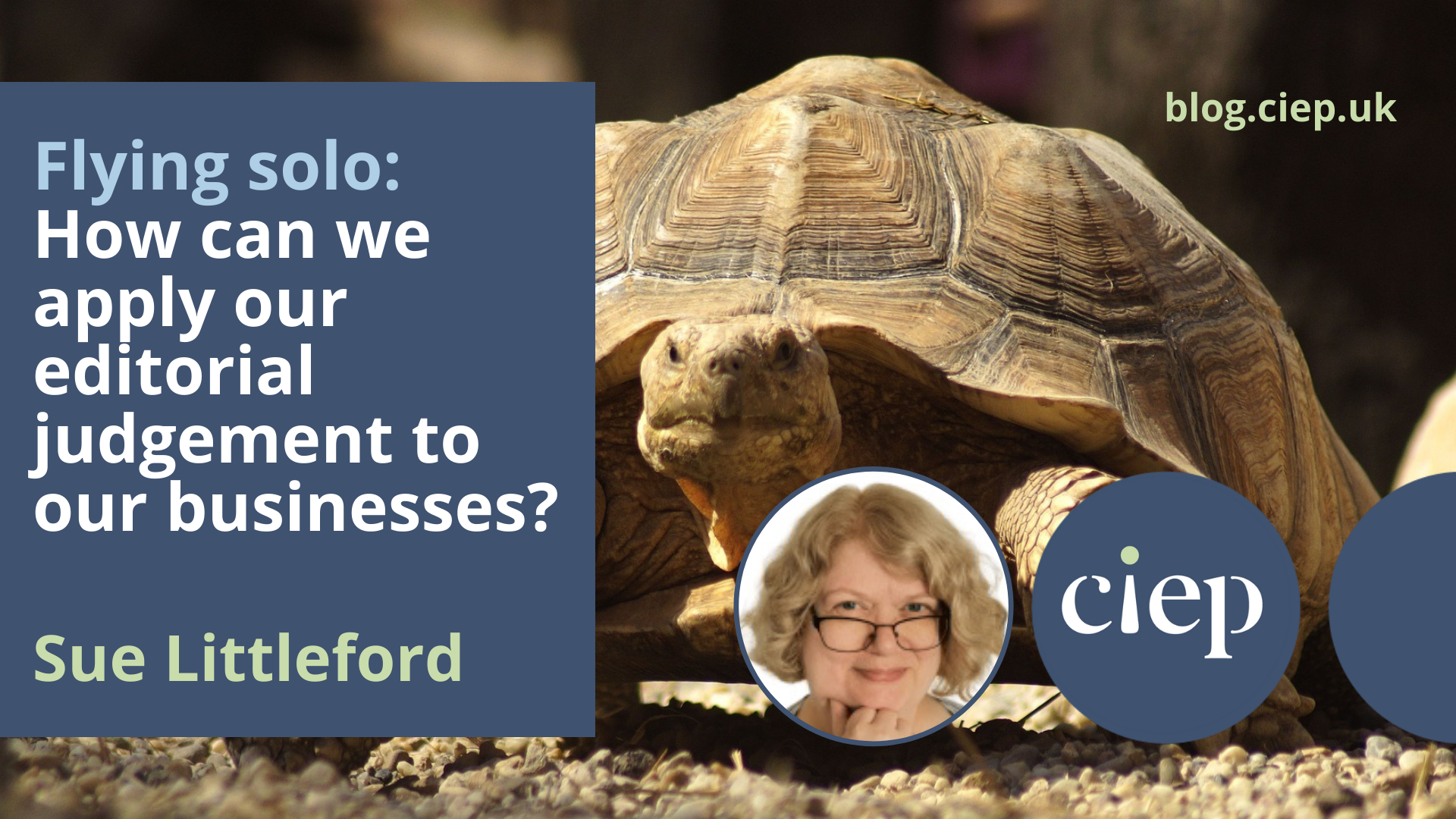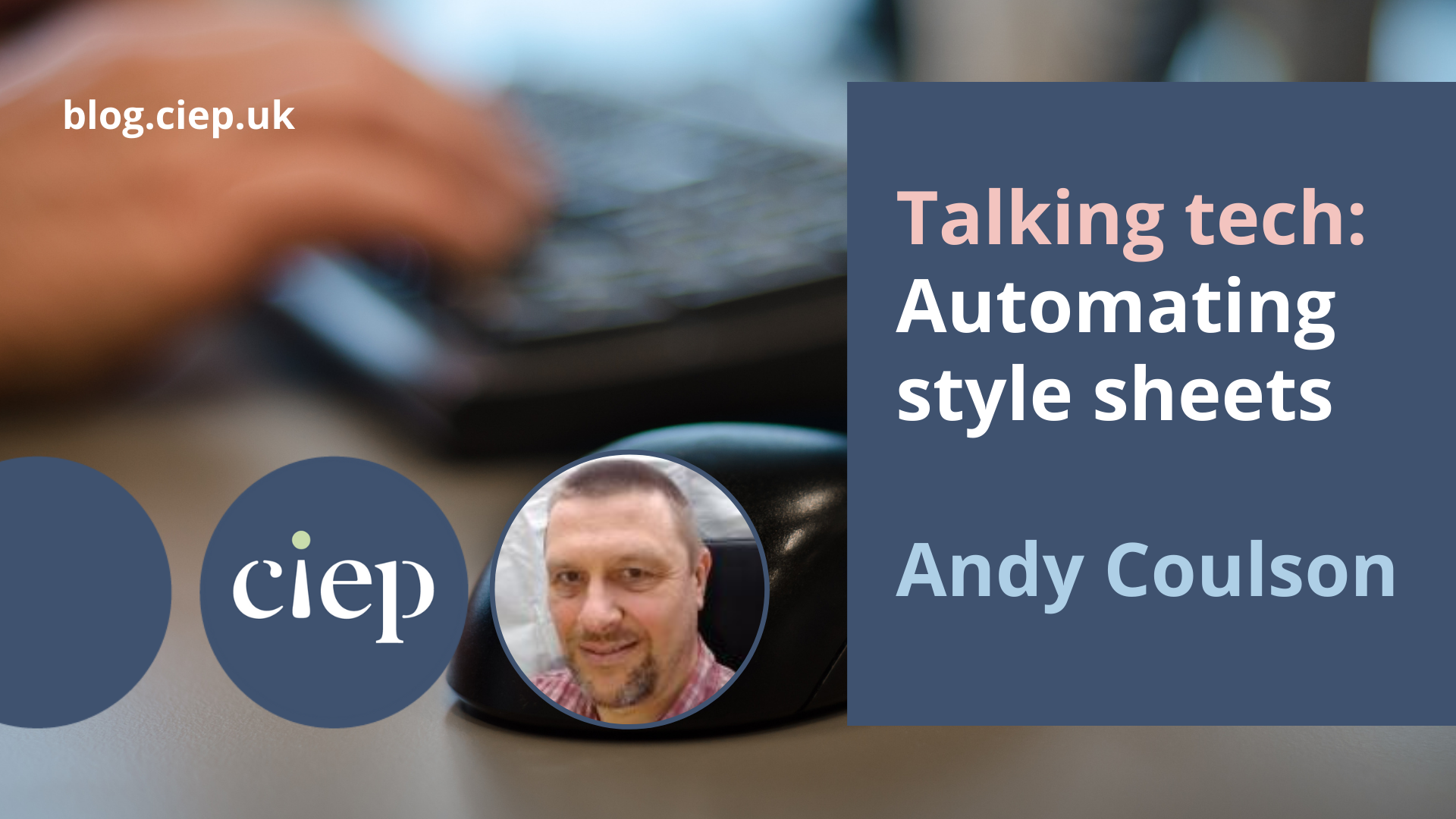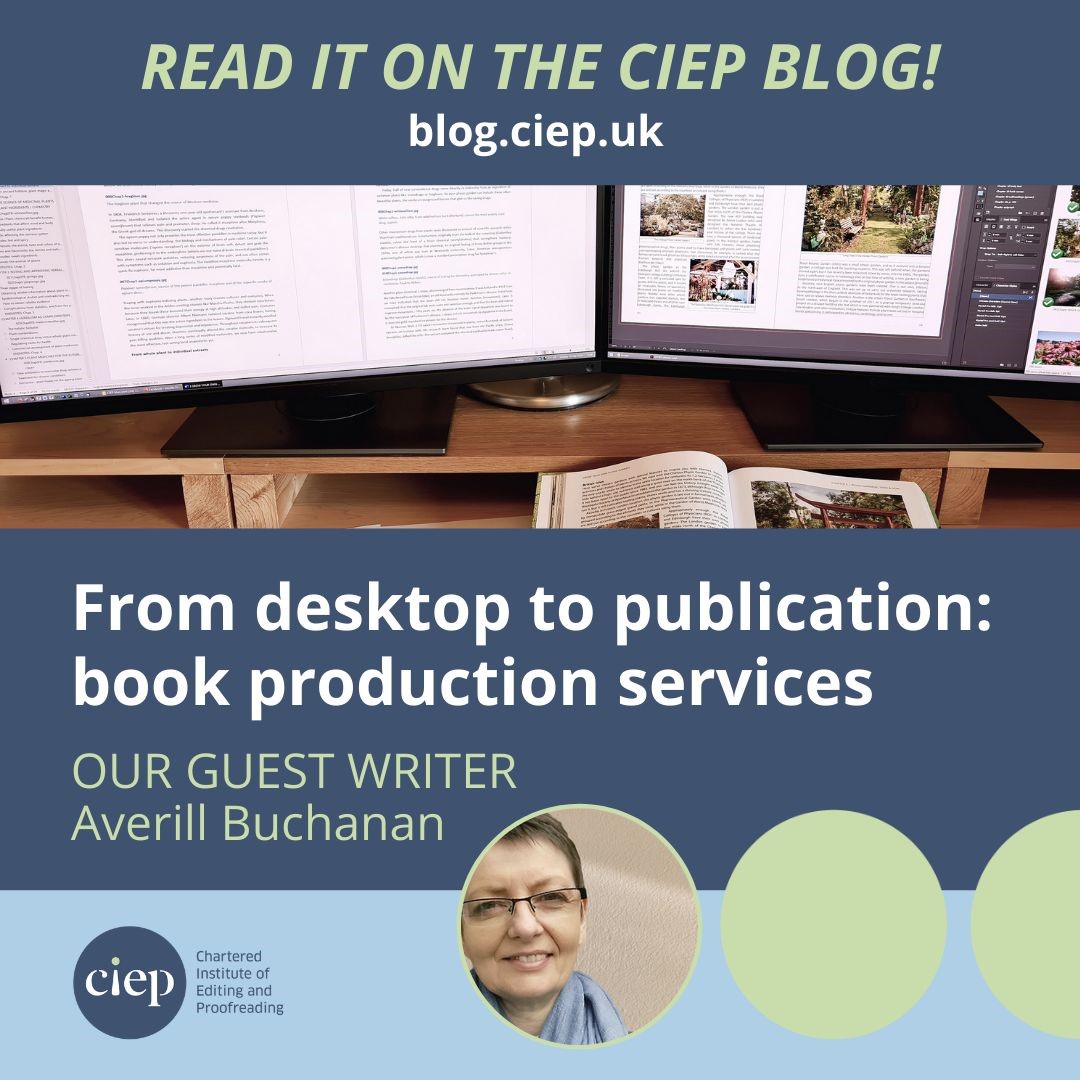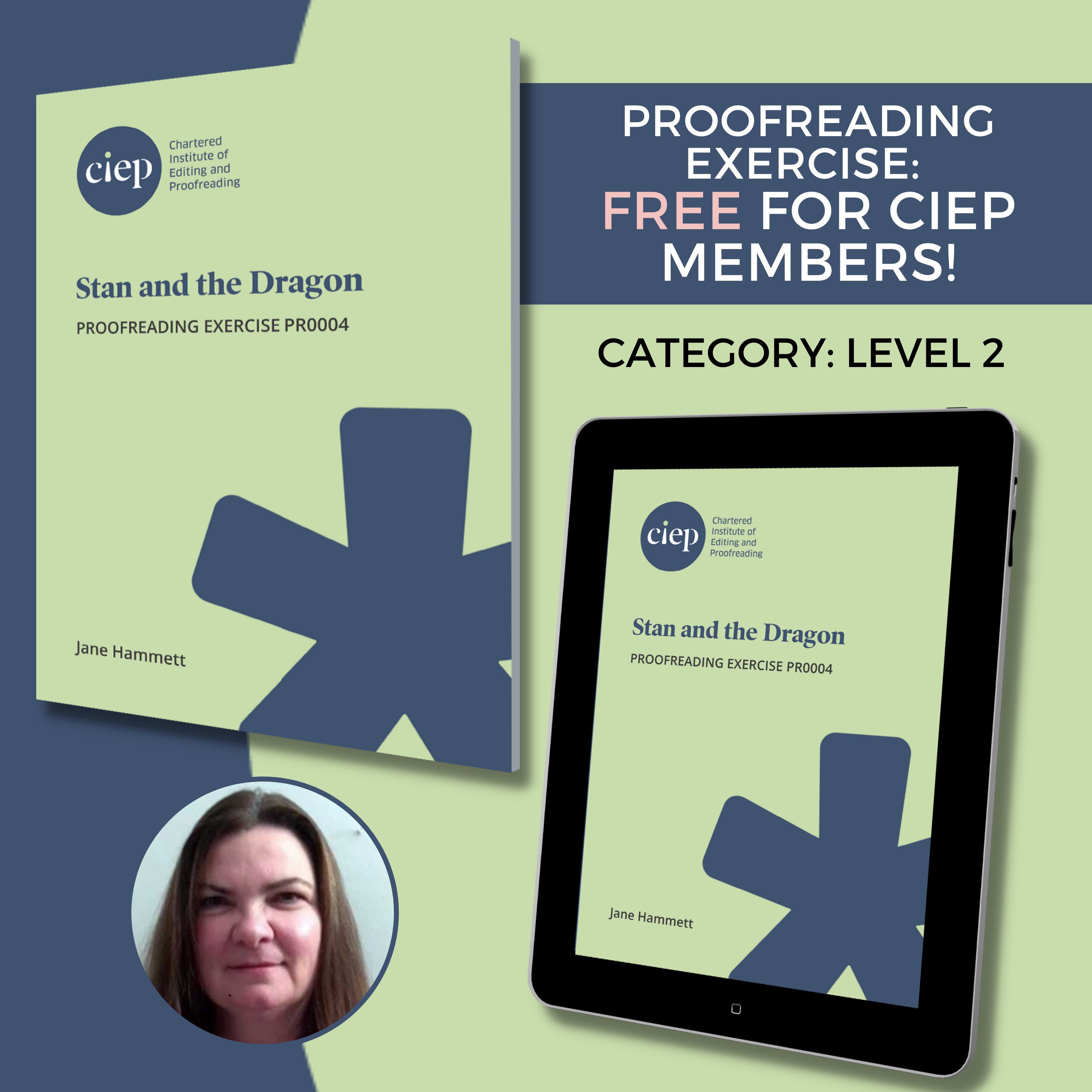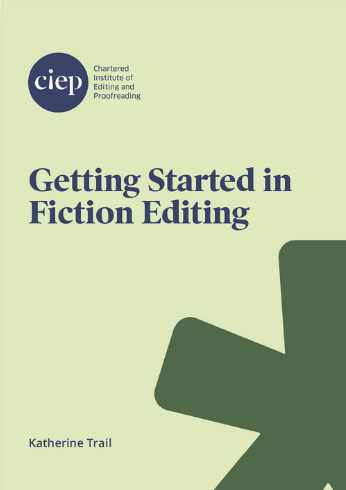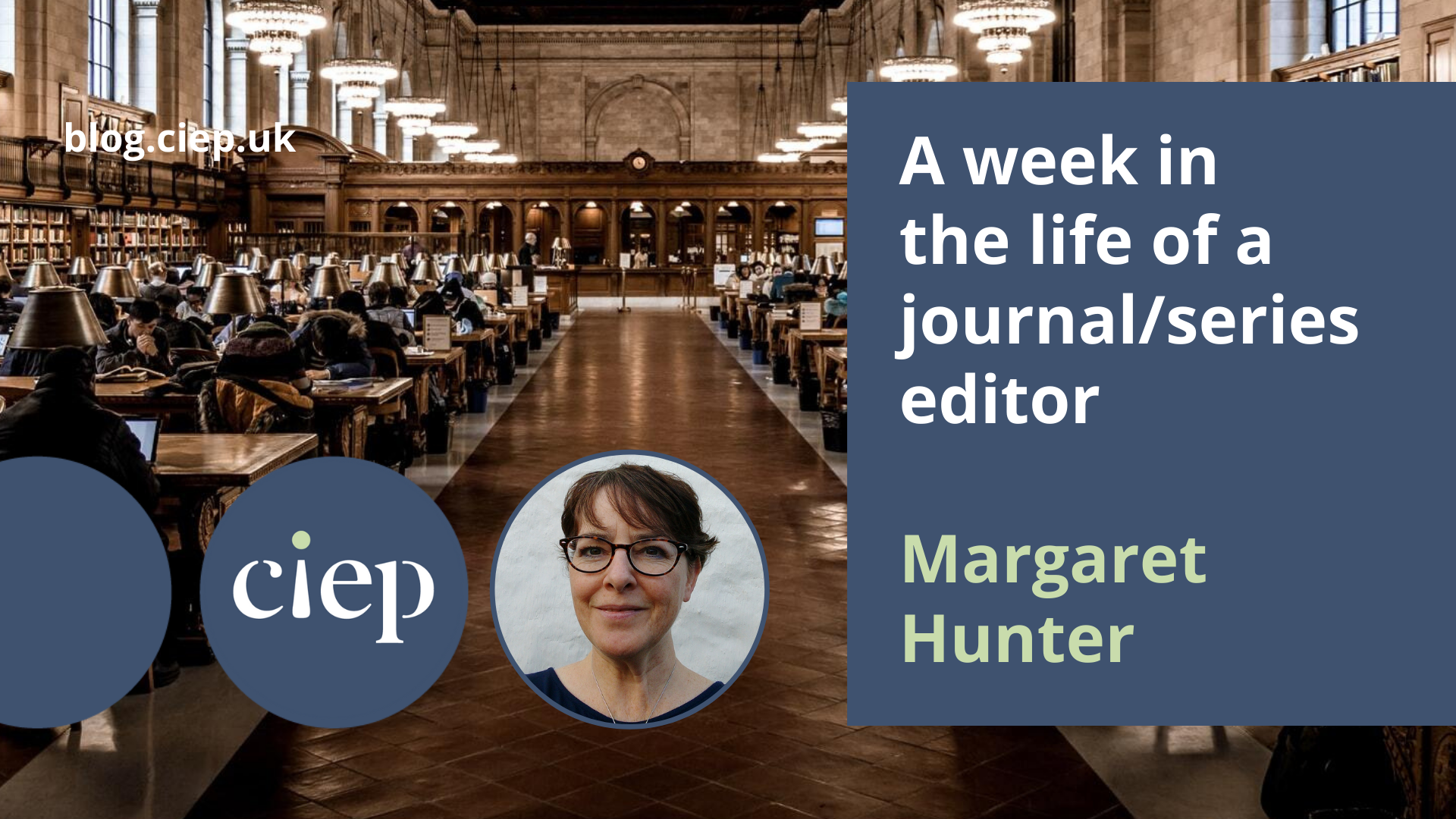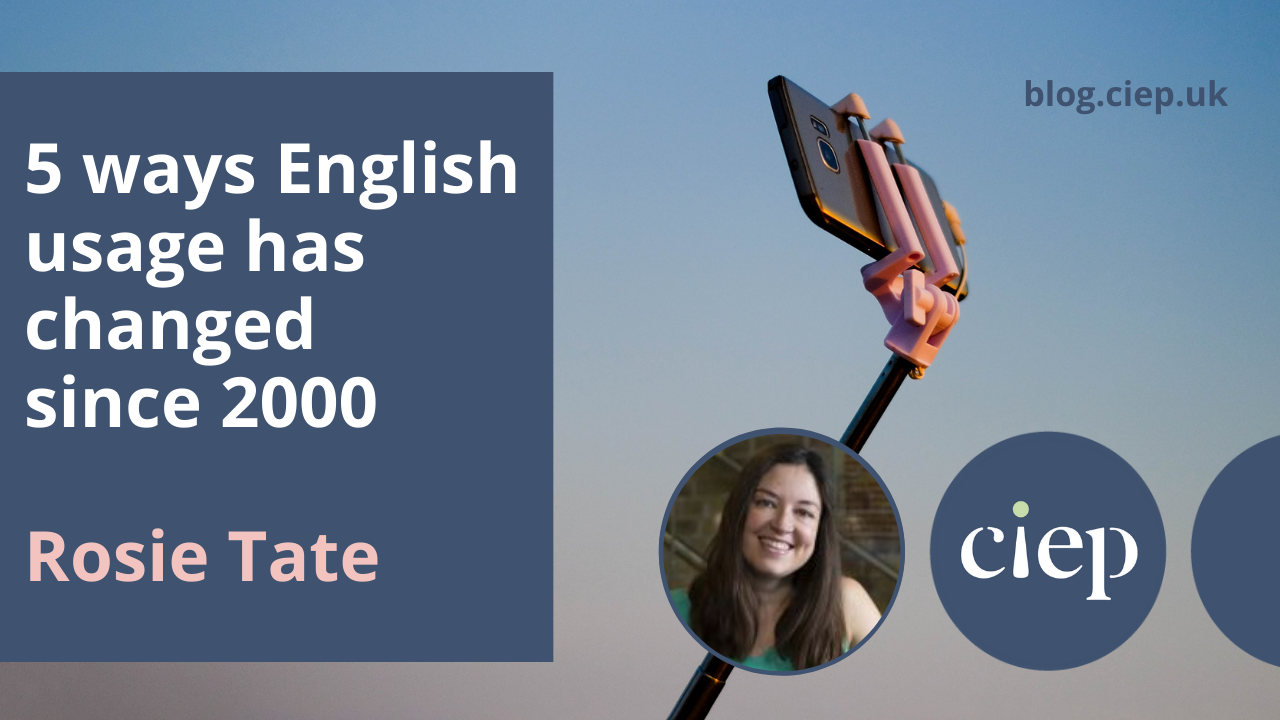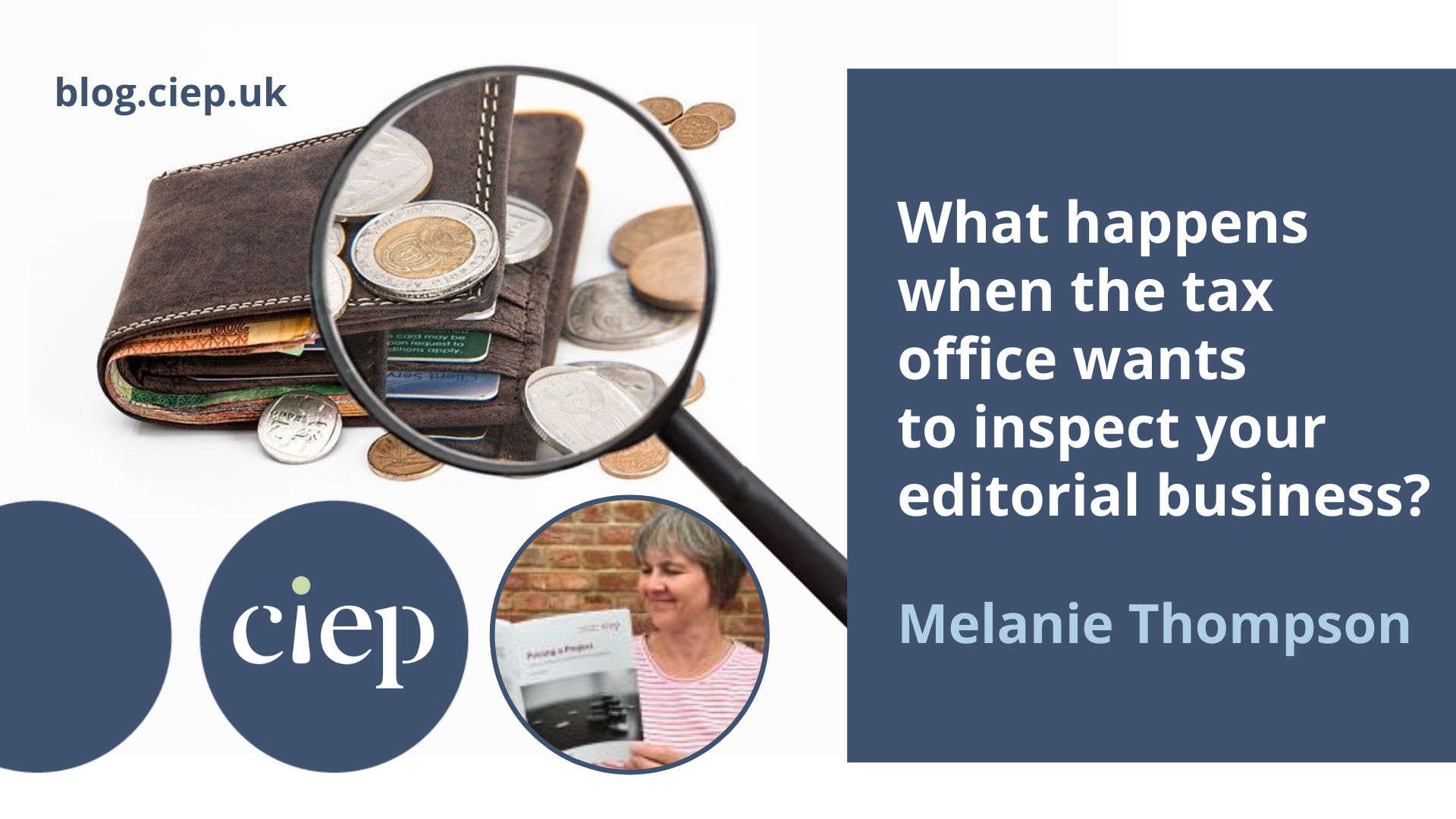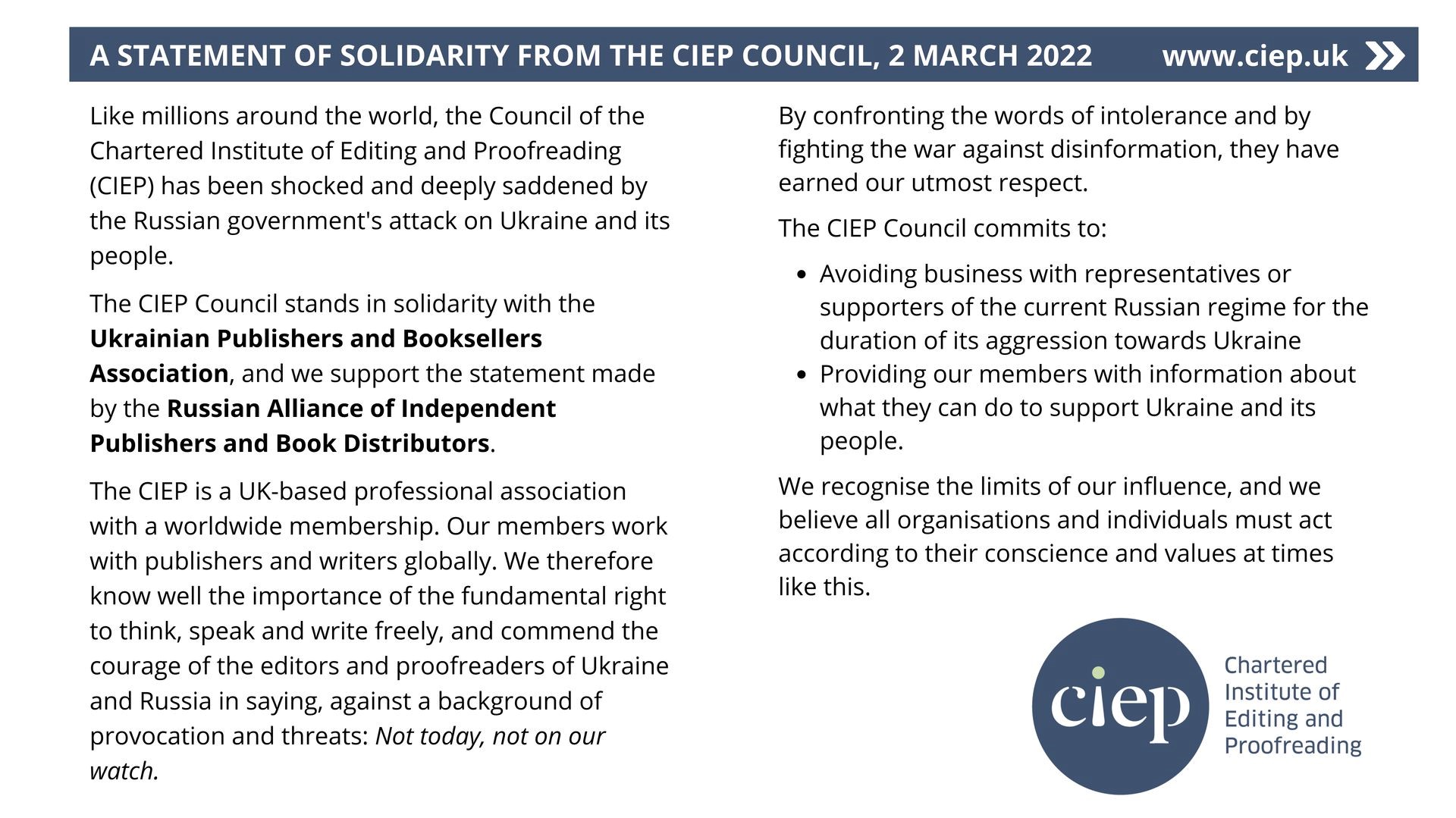In February and March we considered the importance of applying editorial judgement, promoted a new guide, and reflected on change: whether it’s small (the daffodils are out!), planned for (switching to editing a new genre) or hugely unsettling (Russia’s invasion of Ukraine), it’s something that’s hard to escape.
All about editorial judgement
We shared some engaging new blog content from CIEP members in February and March with the theme of making editorial judgements. This coincided with the release of a new fact sheet on this very subject – free for CIEP members.
On any working day, an editor could be making several different types of decisions. At the most basic level, a common editorial judgement is deciding whether to make a correction or not. A more difficult decision can be whether something is good enough, which depends on client expectations, budget, time constraints, the needs of the end user and – as always – the context.
How important is the style sheet? Do we understand what the client wants, or are we second-guessing? What are the red flags to look out for before accepting or rejecting a job? The all-encompassing art of editorial judgement reveals itself in almost every thread on the CIEP’s member forums.
Sue Littleford considered how the critical skill of editorial judgement could be applied to running your editorial business. Before you take on the work, you’re judging whether the text and the client are a good fit for you. What should you charge? How long will it take and will you be able to fit it around other work? Freelancers also need to make branding and marketing decisions. Sue’s article was a treasure trove of expert advice.
Can we rely on tech to help us in our judgements? We shared Andy Coulson’s considerations on the options available for automating style sheets. Computers are very good at following rules and recognising consistency, but editors have to make decisions based on those results.
In her Finer Point series, Cathy Tingle discussed how to navigate the nuances of title case in headings, and in the process discovered the importance of editorial judgement in these decisions. This was a popular post that really got our members debating and discussing capitalisation!
A new guide for science editing
We promoted a new guide on social media in February: Editing Scientific and Medical Research Articles by Dr Claire Bacon.
This guide tells editors all they need to know to help scientists get their research papers ready for publication, explaining how a research article should be structured and giving a step-by-step guide to editing each section, including tables and figures. The elements of scientific style are also explained, together with common problems editors may encounter and how to solve them.
Change
Change was a recurring theme in the CIEP resources that we shared on our social media channels in February and March. Any freelancer has to be prepared to embrace change and keep progressing in their work. We can hope the change is gradual and positive, but sometimes we’re presented with an opportunity that is less of a learning curve and more of a learning catapult. You at least hope for a soft landing.
A new direction
Advanced Professional Member Gale Winskill likes a challenge, and has changed direction in her own career. In a blog she talks of feeling the fear of fiction and doing it anyway! Gale also has some encouraging words for anyone wanting to switch to editing fiction: ‘If you can articulate your reaction to a piece of narrative prose, you can edit fiction!’ Gale has become a well-respected fiction editor and co-wrote the CIEP’s Introduction to Fiction Editing course.
If you’re interested in finding out if fiction editing might be for you, the CIEP also publishes a short guide that may help you to decide: Getting Started in Fiction Editing, written by Kat Trail. Kat herself has changed direction from journalism to fiction editing (and back again!).
Averill Buchanan works primarily as a fiction editor, and in February we shared a blog where she talks about her beginnings in graphic design and her decision to change direction and work as an editor. She explains how both skills have enabled her to help independent authors navigate the sometimes overwhelming process of self-publishing.
We promoted our Exercise Bank in February and March, and there are great resources in this collection to give you a taste of what it is like to proofread and copyedit fiction. One of them – a proofreading exercise by Jane Hammett – provides practice in proofreading a highly illustrated text, checking illustrations, checking layout and using Adobe Acrobat Reader DC commenting/markup tools. It is completely free for members.
Changing your processes for the better
How do you make your work more efficient? In an illuminating blog post, Margaret Hunter describes the process of streamlining workflow for regular and repeated publications such as journals and series. Before beginning she asks herself: ‘I’m going to have to do this again, so what will make it easier or more efficient next time?’ That’s a fantastic question. Before you begin any job it’s worth considering if there are any processes you can employ to speed things up for yourself, reduce drudgery and make the best use of your amazing brain by freeing up more thinking time.
Making sense of changing times
A new blog post from guest writer Rosie Tate of Tate & Clayburn listed five ways the English language has changed in the past two decades. It’s been an eventful 20 years, to put it mildly: words have come and gone, meanings have shifted, technical terms have become everyday, and the pandemic has introduced words and phrases from virology and medicine.
As certain as death and taxes
The most extreme example of change is something we don’t like to think of or talk much about … the subject of death. We shared this epically researched blog by Luke Finley and Laura Ripper which provides a practical and sensitive guide to what you should have in place for your clients and colleagues if you should pass away unexpectedly. Thanks for making us think about this subject.
Another subject we don’t like to think of or talk much about is … HMRC. Melanie Thompson described her experience of being inspected by the UK’s tax authority. The jolt of adrenaline from reading this was more than the effect of any double espresso, and had a lot of members asking for the number of Melanie’s accountant. We recommend you read it; it has a happy ending. You’re a trooper, Melanie.
And finally …
What if the change you are presented with isn’t a choice – and is life altering? How do you cope with that?
We’ve all had two years of getting used to a ‘new normal’, and now the world is experiencing another time of great uncertainty and worry. War is a constant fact of life for many people in our world, a fact that leaves many of us feeling rather helpless. One small way editors can contribute is through our work; to always challenge intolerance and disinformation where we find it.
Our most roundly supported social media post in February and March was the CIEP Council’s statement of solidarity with the Ukrainian Publishers and Booksellers Association, and support of a statement made by the Russian Alliance of Independent Publishers and Book Distributors.
Our CIEP social media output is the work of many hands. Thank you to the information team, the social media team, the writers, editors, proofreaders and everyone who takes time to engage with our posts.
Don’t miss a thing in editing and proofreading. Follow us on Twitter, Facebook and LinkedIn.
 About the CIEP
About the CIEP
The Chartered Institute of Editing and Proofreading (CIEP) is a non-profit body promoting excellence in English language editing. We set and demonstrate editorial standards, and we are a community, training hub and support network for editorial professionals – the people who work to make text accurate, clear and fit for purpose.
Find out more about:
Photo credits: blossom by Mitrey on Pixabay.
Posted by Harriet Power, CIEP information commissioning editor.
The views expressed here do not necessarily reflect those of the CIEP.

